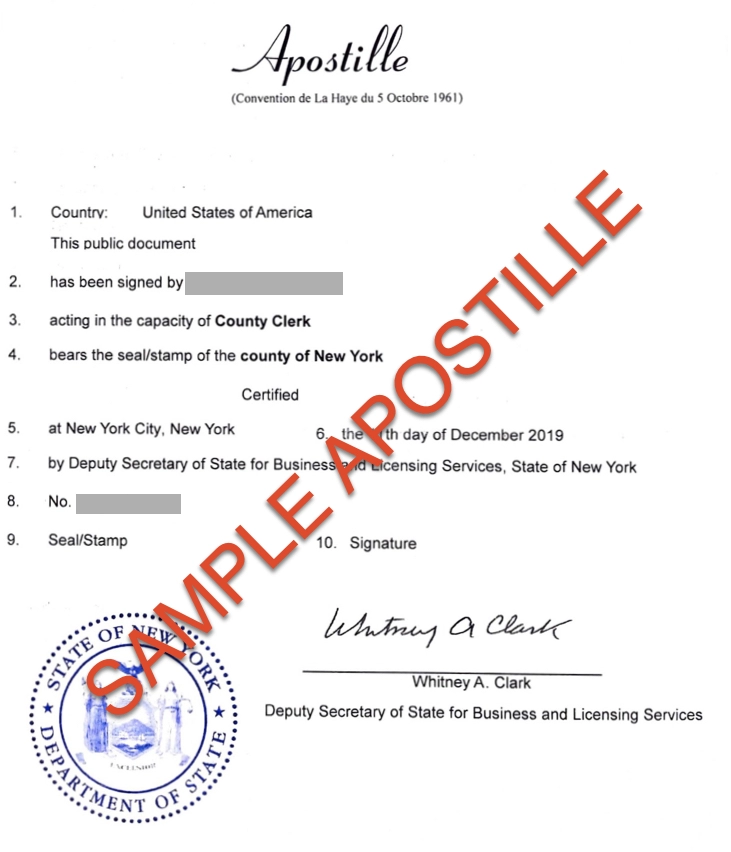Houston Apostille Specialists: Your Best Legalization Option
Exploring the Reasons Behind the Necessary Demand of Apostille Accreditation for Legal Papers
In the realm of legal documentation, the obligatory demand of apostille accreditation has become a vital element that considerably impacts the validity and acknowledgment of legal papers on an international scale. Recognizing the reasoning behind this requirement includes delving right into the detailed internet of legal complexities, historic precedents, and global agreements that emphasize the value of apostille qualification in today's interconnected globe. By exploring the underlying factors behind this extensive requirement, a clearer image arises of why this seemingly bureaucratic procedure holds such enormous significance for companies, individuals, and governments alike.
Historic Evolution of Apostille Qualification
Exactly how did the principle of apostille accreditation evolve gradually to become a crucial part of international record validation? The historic evolution of apostille accreditation go back to the early 20th century. The demand for a simplified approach of validating papers for usage across boundaries became evident as international trade and traveling increased. In action to this demand, the Hague Conference on Personal International Regulation introduced the Apostille Convention in 1961. This worldwide treaty developed a streamlined process for accrediting the credibility of documents to be acknowledged in participant nations.
Initially adopted by a few European nations, the Apostille Convention slowly got worldwide approval as a result of its performance and performance in verifying the authenticity of main documents. For many years, the convention's reach increased as even more nations signed up with, acknowledging the apostille as a globally approved form of file authentication. Today, apostille accreditation has become a conventional demand for verifying legal papers in international purchases, making certain smooth interaction and lawful procedures between nations.
Simplifying International File Legalisation
The streamlining of worldwide document legalisation treatments has significantly improved efficiency in cross-border deals. Streamlining the procedure of legalizing files for global usage has ended up being crucial in helping with swift and smooth purchases between countries. One of the crucial devices that have actually added to this simplification is the adoption of the Apostille Convention, which supplies a standard approach for verifying the authenticity of files across taking part countries.
By sticking to the Apostille needs, countries agree to recognize each other's public files as valid without the requirement for more legalisation. This removes the extensive and often cumbersome process of several authentications by different authorities, saving time and sources for services and people participated in worldwide activities.

Ensuring Record Credibility and Credibility
To make sure the credibility and credibility of lawful look at more info documents in worldwide purchases, strict confirmation processes are necessary. By requiring apostille accreditation for lawful papers, authorities aim to confirm the origin of files and validate the trademarks of individuals included.
In addition, verifying the authenticity of lawful records through apostille accreditation boosts trust and confidence among celebrations taking part in international transactions. It offers guarantee that the records offered are genuine and legally binding, thus minimizing the threats linked with fraudulent activities. Furthermore, making sure record legitimacy via apostille certification simplifies the legalization process, making it much more trustworthy and reliable for people and companies carrying out service throughout borders. Eventually, by maintaining stringent confirmation requirements, apostille accreditation adds to a much more transparent and protected worldwide legal framework.

Helping With Cross-Border Legal Recognition
In the world of global deals, the apostille accreditation not only ensures the credibility and credibility of legal documents yet likewise plays a critical role in promoting cross-border lawful recognition (Houston Apostille). When legal papers bear an apostille certificate, they are conveniently approved by international authorities without the requirement for further confirmation. have a peek at this website This streamlined procedure accelerates the recognition of records in various countries, advertising effectiveness and reducing governmental obstacles in lawful matters that go beyond national borders
Helping with cross-border lawful acknowledgment via apostille certification promotes depend on and self-confidence in the credibility of documents exchanged between countries. By sticking to the criteria established forth by the Apostille Convention, countries concur to honor the apostille seals affixed to papers from various other participant countries, therefore streamlining the procedure of legal recognition throughout borders.
Conformity With International Treaty Requirements
Conformity with worldwide treaty requirements is vital for guaranteeing the uniform application of lawful guidelines across participating countries. The Apostille Convention, established in 1961, outlines the needs for the acceptance of public documents among member countries.
The Apostille certification, as mandated by the treaty, acts as a warranty of credibility for documents such as birth certifications, marriage licenses, court judgments, and notarized deeds. This standard method aids stop fraud and ensures that lawful papers stemming from one member nation are readily approved in another. By conforming with global treaty requirements, countries demonstrate their commitment to promoting the principles of openness, trust, and collaboration in lawful matters on a worldwide range.
Conclusion

In the realm of legal documents, the mandatory requirement of apostille accreditation has actually come to be an important element that dramatically influences the validity and recognition of legal documents on a global range. Today, apostille qualification has actually become more information a basic demand for verifying legal papers in worldwide deals, making sure smooth interaction and lawful process in between countries.
Additionally, validating the credibility of lawful papers with apostille accreditation improves count on and confidence among parties involving in global purchases.In the world of worldwide deals, the apostille accreditation not only ensures the credibility and legitimacy of lawful papers however likewise plays a critical function in facilitating cross-border lawful acknowledgment. By adhering to the standards established forth by the Apostille Convention, countries agree to honor the apostille seals affixed to records from various other member countries, hence streamlining the process of lawful acknowledgment across boundaries.